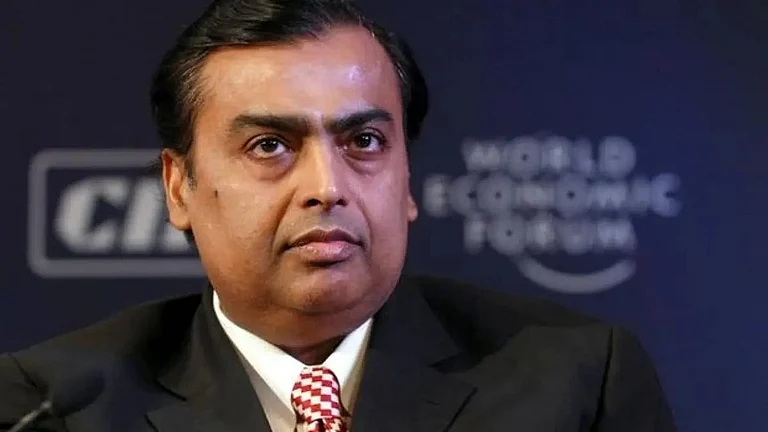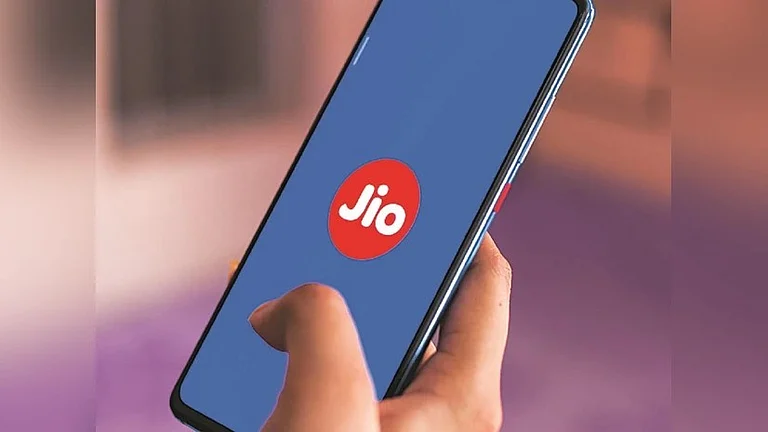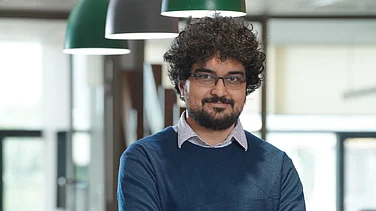Billionaire Mukesh Ambani on Monday laid out the roadmap for the next phase of growth at his USD 200 billion-conglomerate with a newly launched financial services unit planning to offer insurance products, telecom arm Jio providing wireless broadband services to homes and marquee investors queuing up for a pie of the retail unit.
Reliance Industries Ltd will continue to invest in clean energy projects, including 100 plants to convert agri-residue -- a source of pollution in the north during winter -- into gas that can fuel automobiles and generate power. All this to offset emissions from its traditional fossil fuel business.
Speaking at the company's annual shareholders' meeting, Reliance Industries Chairman Mukesh Ambani also said his three children will join the company board as part of the succession planning.
He will continue to be Chairman of the company for another five years beyond the current term which expires on April 19, 2024.
Already the largest retailer in the country with offerings ranging from grocery to high-end fashion, Reliance Retail is attracting "strong interest" from other top investors after it raised USD 1 billion from Qatar Investment Authority, he said.
The QIA investment for a 1 per cent equity stake values the retail unit for Rs 8,28,000 crore -- almost double of Rs 4,28,000 crore valuation at the time of the last fund-raise in September 2020 when investors like KKR, Silver Lake and TPG took a stake.
"Several marquee global strategic and financial investors have shown strong interest in Reliance Retail," he said without giving details.
Ambani had in 2019 stated that the group plans to list the retail business in five years.
He did not provide any guidance on the listing.
On the just listed Jio Financial Services (JFS) -- the fourth business of Reliance after oil-to-chemicals, telecom and retail -- Ambani said Reliance has capitalised JFS with a net worth of Rs 1,20,000 crore to create one of the world's highest capitalised financial service platforms at inception.
JFS has announced a joint venture with BlackRock for mutual funds business.
It will leverage 450 million mobile phone subscribers' base of the telecom arm, Jio to sell its products, including payment services.
"JFS will enter the insurance segment to offer simple, yet smart, life, general, and health insurance products," he said.
In seven years since its launch, Jio has amassed over 450 million subscribers and per-user data consumption topped 25 GB every month. Its 5G services rollout has now covered over 96 per cent of towns and is on track to cover the entire country by December, making it the fastest-ever 5G rollout of this scale anywhere in the world, he said.
He also talked about the recently launched JioBharat, which seeks to tap into 250 million feature phone users.
At Rs 999, the 4G phone, which allows live TV streaming, playing video and music, digital photography, and even UPI payments, is priced at less than even a feature phone.
JioFiber, its optical fibre-based home broadband service, has crossed 10 million subscribers, with each consuming over 280 GB of data per month -- over 10 times higher than per-capita mobile data consumption.
For places that lag last-mile connectivity, it will offer JioAirFiber -- fixed-wireless broadband. "JioAirFiber will launch on the auspicious occasion of Ganesh Chaturthi on September 19," Ambani said.
On the oil and gas business, he said the company's joint venture with BP is on course to produce 30 million standard cubic metres per day or one-third of India's gas production from their KG-D6 fields in the Bay of Bengal.
Alongside its giant oil refining and petrochemicals business, Reliance has embarked on a journey to transition that aims to achieve net carbon zero emission by 2035, he said.
Reliance is investing Rs 75,000 crore in building four giga factories across 5,000 acres at its Jamnagar refinery complex in Gujarat to make solar panels, batteries for energy storage, electrolysers to produce hydrogen and fuel cells to convert it. It is also looking to establish at least 100 gigawatt (GW) of solar energy by 2030.
"We are well on our way to build the new energy ecosystem of manufacturing solar, wind, batteries, hydrogen, and bio-energy platforms," he said.
A fully integrated, end-to-end solar PV manufacturing ecosystem that will convert sand into solar PV modules is the first priority.
"Our solar giga factory will include manufacturing of PV modules, cells, wafers and ingots, polysilicon, and glass at a single location in Jamnagar. We will target to bring the factory on-stream in a phased manner by the end of 2025," he said.
Reliance is also pursuing wind power generation.
"Our concurrent priority is to set up our battery Giga factory by 2026. It will manufacture battery chemicals, cells and packs, leading all the way up to containerised energy storage solutions, and will include a battery recycling facility to deliver a truly integrated ecosystem," he said.
Before that, it plans to industrialise sodium ion cell production at a megawatt level by 2025, and rapidly scale up to giga scale thereafter.
On hydrogen, he said Reliance now has a roadmap towards achieving its targeted cost of electrolysers that split water using renewable electricity to produce green hydrogen. He, however, did not give details.
Ambani also detailed the company's plans to convert agri-residue into gas.
"After setting up two demo units for Compressed BioGas (CBG) at Jamnagar, we have commissioned the first commercial-scale CBG plant at Barabanki in Uttar Pradesh in a record time of just 10 months," he said.
It wants to rapidly scale this up to 25 CBG plants across India.
"Our target is to establish 100 CBG plants in the next 5 years, consuming 5.5 million tonnes of agro-residue and organic waste, thereby mitigating nearly 2 million tonnes of carbon emissions, and producing 2.5 million tonnes of organic manure annually. This would result in a reduction of about 0.7 million tonnes per annum of imported LNG," he said.
Ambani said Reliance was progressing well on the Rs 75,000 crore plan to build its new energy manufacturing ecosystem. "This will enable us to accelerate giga-scale production for round-the-clock power and for large-scale green hydrogen production for green chemicals manufacturing, as well as for green mobility."
The company has chosen to be in businesses that have large pent-up demand, which is guaranteed to grow at a healthy rate annually over many decades.
"This choice has led us to build businesses of global size and scale. Each of Reliance's three growth engines - our O2C business, our retail business and Jio's digital services business - meets this value-creation criterion. And so also will our newest and fourth growth engine - Jio Financial Services," he added.


























.jpg?w=200&auto=format%2Ccompress&fit=max)




